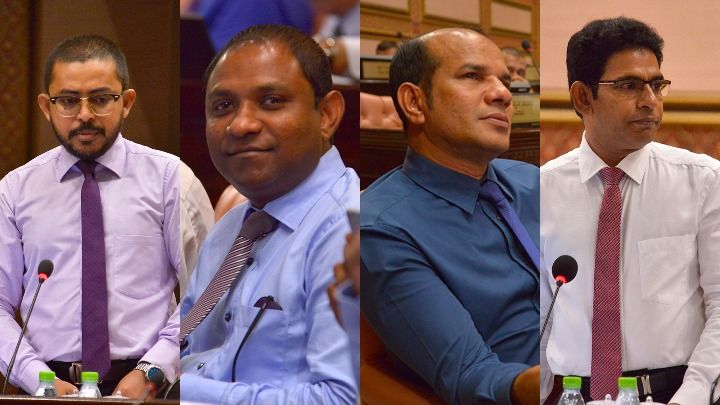Supreme Court to rule on unseated lawmakers
A dozen lawmakers were deemed to have lost their seats for crossing the floor.

01 Oct 2018, 09:00
The Supreme Court is expected to settle in the coming days a protracted dispute over lawmakers deemed to have lost their seats for crossing the floor.
On Monday, the apex court resumed hearings in appeals filed by MPs Mohamed Waheed Ibrahim and Saud Hussain challenging their disqualification by the Elections Commission in July last year.
Chief Justice Dr Ahmed Abdulla Didi declared that judgments would be delivered soon at the next hearing but did not announce a date. Didi said Monday’s hearings were scheduled as a procedural matter as the five-judge Supreme Court bench had been reconstituted after hearings in the case were concluded last year.
He asked the lawmakers and lawyers representing the Elections Commission and the Attorney General’s office whether they wished to add to previous arguments. Both sides declined and asked the chief justice to deliver judgments as soon as possible.
Become a member
Get full access to our archive and personalise your experience.
Already a member?
Discussion
No comments yet. Be the first to share your thoughts!
No comments yet. Be the first to join the conversation!
Join the Conversation
Sign in to share your thoughts under an alias and take part in the discussion. Independent journalism thrives on open, respectful debate — your voice matters.




